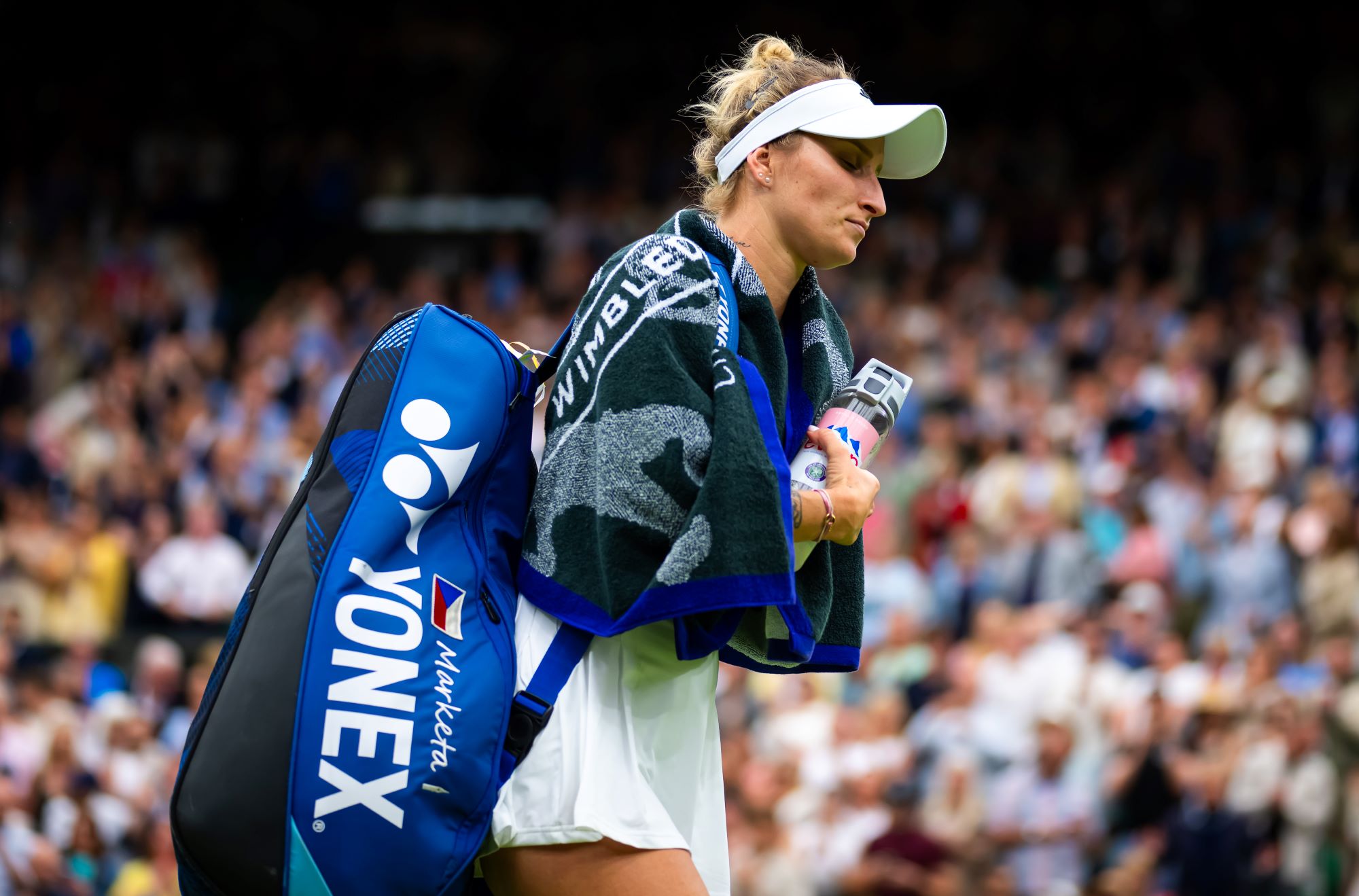No one wanted Marketa Vondrousova to become a major champion in the first place. In 2023, she was merely Ons Jabeur’s opponent in the Wimbledon final. Jabeur, one of the most likable players on tour, had been outspoken about her desire to have children, but she desperately wanted to win a major tournament before putting her career on hold. Jabeur had already lost to Elena Rybakina in the Wimbledon final from a set up in 2022. She came back the next year and avenged that loss in the quarterfinals, then beat another tournament favorite, Aryna Sabalenka, from a set and a break down in the semis. Rybakina and Sabalenka had recently met in the 2023 Australian Open final; Jabeur beating them back-to-back was as impressive a pair of wins as anyone had recorded all year. Vondrousova, unseeded at the tournament, figured to be an easy final opponent for Jabeur. The hard work was done, now for the easy finish and the coronation.
But her efforts in the previous rounds had gassed Jabeur physically and mentally by the final, and the pressure of being the overwhelming favorite turned her into a nervous wreck. Vondrousova’s tricky style proved unsolvable—she tracked down seemingly unreachable balls in the corner and sent them back at unorthodox angles, giving Jabeur the chance to miss time and again. Miss she did, and Vondrousova claimed an anticlimactic 6-4, 6-4 win. The collective, dejected sigh the crowd released when all was said and done captured the mood, which was distinctly more “heartbreak for Ons Jabeur” than “what a win for Vondrousova!” It didn’t matter that Vondrousova had made a major final before, way back in 2019 as a teenager, or that she had her own, thoroughly endearing story to tell about her path to glory. All that mattered was that Vondrousova was the woman who beat Ons Jabeur when everyone wanted Ons Jabeur to win Wimbledon.
Since then, few have spoken about Vondrousova has anything more than a one-slam wonder, though she’s made the quarterfinals at the Australian Open and Roland Garros and carved out a spot inside the top 10. Her loss to Jessica Bouzas Maneiro on Tuesday in the first round of her Wimbledon title defense will do little to change that perception.
Bouzas Maneiro, ranked 83rd and without a single tour-level win on grass, looked more like the pre-match favorite. Any aura Vondrousova might have had as defending champion evaporated in her very first service game, where she hit three double faults. She was slow to react to deep shots and plopped standard backhands into the middle of the net, a far cry from the player who couldn’t miss against Jabeur in 2023. In the second set, she lost a string of consecutive points, falling from a 1-1 deadlock to 1-3, love-15. When Vondrousova dug out a hold of serve, making a superb retrieval deep in her forehand corner and foiling a net rush with a stunning lob, rather than celebrate, she just kind of sagged. A few minutes later, Bouzas Maneiro completed her win, not even facing enough resistance in the last game to have a chance to get nervous.
There’s no consolation for Vondrousova. All but 10 of the 2,000 ranking points she earned with her Wimbledon title last year will drop off now, and the criticism will presumably be harsh. There are extenuating circumstances, though. At a Wimbledon warm-up tournament in Berlin, Vondrousova slipped and fell on the slick grass, hurting her hip. She couldn’t finish the second-round match. It’s entirely possible Vondrousova hasn't fully recovered and just wanted to show up because Wimbledon meant so much to her.
It would be nice to allow some grace for that. Tennis’s format places a greater burden on top female players at majors than their male counterparts. The WTA plays best-of-three, like at tour level, whereas the ATP favorites are afforded more time to find their top level in best-of-five matches. A handful of seeded men's players coming back from two sets down to win in the first couple rounds is routine (Frances Tiafoe pulled off one such comeback yesterday), whereas on the WTA, a bad hour is all it takes to lose.
It’s all a bit sad. “One-slam wonder” has become a somewhat derogatory term for one-time major winners on the WTA. There’s a tendency to look at them as underachievers, unable to repeat a big spike of success, but they may really be maximizers. The WTA is incredibly deep; while there are usually no more than three or four men with realistic chances of winning any given major, dozens of women at those same tournaments enter with credible hopes to win the trophy. Upsets are possible in any round with that shorter format. Female players are usually less serve-dominant, too, and return better, so easy wins are harder to come by. Winning seven matches in a row, most of them against players capable of beating anyone, is a real feat. Only Iga Swiatek at Roland-Garros has managed to cultivate a sense of inevitability in recent seasons—and she still had to save a match point against Naomi Osaka in the second round this year.
Between Vondrousova’s injury concerns and the sheer difficulty in repeating major success, this result isn’t as much of a failure as it might seem. Given the lack of adulation over her win last year, though, it seems unlikely she will be talked about as favorably as other established major winners. Expect to hear a lot about how she is the first defending Wimbledon champion to lose in the first round since 1994. (That was 23-time major champion Steffi Graf, so good company.) Vondrousova’s Wimbledon title seems destined to be a trivia answer someday—Who was it who won the year after Rybakina in 2022, again?—and it deserves to be more. I hope she’s easier on herself than viewers will be.






